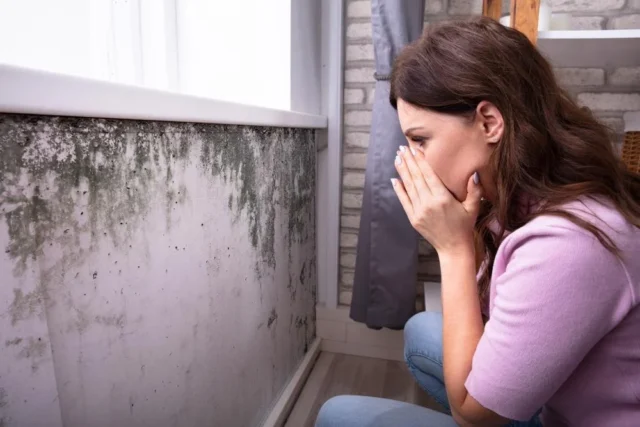 Living in a humid state like Florida comes with its own set of challenges, and one of the significant concerns for homeowners is mold growth. Beyond the visible damage to property, mold growth in homes can pose serious health risks to occupants. In this blog post, we will explore the potential health risks associated with mold growth in Florida homes and the importance of addressing these issues promptly.
Living in a humid state like Florida comes with its own set of challenges, and one of the significant concerns for homeowners is mold growth. Beyond the visible damage to property, mold growth in homes can pose serious health risks to occupants. In this blog post, we will explore the potential health risks associated with mold growth in Florida homes and the importance of addressing these issues promptly.
- Allergies: Mold spores are known to trigger allergic reactions in individuals who are sensitive or allergic to them. When mold spores are inhaled or come into contact with the skin, they can lead to symptoms such as sneezing, coughing, itchy or watery eyes, nasal congestion, and skin rashes. For individuals with pre-existing allergies or respiratory conditions like asthma, exposure to mold can worsen their symptoms and make breathing difficulties more pronounced.
- Respiratory Issues: Mold produces airborne particles, including spores and mycotoxins, which can be inhaled into the respiratory system. Prolonged exposure to mold can irritate the airways and lead to respiratory problems. It may cause coughing, wheezing, shortness of breath, throat irritation, and chest tightness. Individuals with compromised immune systems or respiratory conditions are particularly vulnerable to the respiratory effects of mold exposure.
- Asthma Attacks: For individuals with asthma, exposure to mold can trigger asthma attacks. Mold spores and the volatile organic compounds (VOCs) released by mold can irritate the airways, leading to increased inflammation and constriction of the bronchial tubes. This can result in coughing, wheezing, difficulty breathing, and a sense of chest tightness. Proper mold remediation is essential for asthma sufferers to maintain a healthy indoor environment.
- Sinus Infections: Mold can cause or exacerbate sinus infections, known as fungal sinusitis. When mold spores are inhaled, they can settle in the sinuses and promote the growth of fungi, leading to chronic sinusitis. Symptoms may include facial pain, headaches, nasal congestion, a persistent cough, and thick nasal discharge. Prompt remediation of mold is crucial in preventing recurring sinus infections.
- Skin Irritation: Direct contact with mold or its spores can cause skin irritation and allergic reactions. Prolonged exposure or contact with mold-infested materials can lead to redness, itching, rashes, and other dermatological issues. People with sensitive skin or pre-existing skin conditions may be more prone to experiencing skin reactions due to mold exposure.
- Immunological Responses: Some molds produce mycotoxins, toxic substances that can have adverse effects on the immune system. These mycotoxins can enter the body through inhalation, ingestion, or skin contact and disrupt the normal functioning of the immune system. Prolonged exposure to mycotoxins may weaken the immune system, making individuals more susceptible to infections, allergies, and other health issues.
- Mental and Neurological Effects: Emerging research suggests that mold exposure may have implications for mental and neurological health. Some studies have shown a potential link between mold exposure and symptoms such as difficulty concentrating, memory problems, fatigue, mood swings, and depression. However, further research is needed to fully understand the relationship between mold exposure and mental health effects.
Mold growth in Florida homes presents significant health risks to occupants. The allergens, irritants, and potentially toxic substances produced by mold can lead to respiratory issues, allergies, asthma attacks, sinus infections, skin irritation, and immunological responses. It is essential for homeowners to be proactive in preventing and addressing mold growth through proper moisture control, ventilation, and timely remediation. Seeking professional assistance for mold remediation is crucial to ensure a safe and healthy living environment for residents in Florida homes, minimizing the potential health risks associated with mold exposure.

